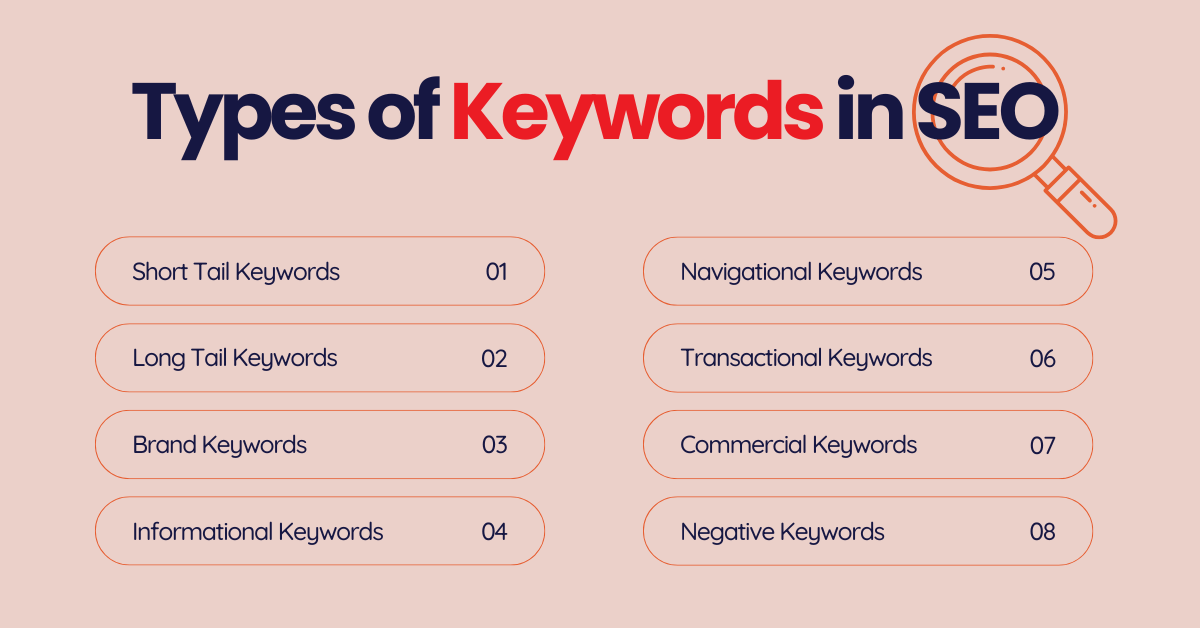You must get the keyword research correct in case you want your site to be on the first page of Google. It’s the root of every successful SEO strategy. Keyword research lets you know the audience’s search terms and the best ways to reach them. Regardless you have a digital marketing agency or a personal blog, the right selection of keywords can either give you a lot of online visibility or none at all.
This tutorial will take you through the keyword research process step by step with a discussion on the types of keywords, keyword intent, and best practices for getting high search rankings.
What is Keyword Research?

Keyword research is a method of locating and evaluating the words or phrases that users enter into search engines. These are referred to as search terms. Using the best keywords in your text not only helps to draw the right audience but also increases the number of visitors to your site.
For instance, the search “best digital marketing agency in Jaipur” will lead Google to provide a list of so-called agencies that are suitable for a customer with that search intent.
Keyword research gives you the following advantages:
- Get to know the pain points of your audience.
- Generate intention-specific content.
- Enhance the visibility and conversion rates of your site.
Why Keyword Research is Important in SEO

The importance of keyword research in SEO is far greater than mere positioning; an entire connection with your target audience is made possible. Here is a list of reasons why it is still essential:
It shapes your SEO content strategy.
- It points out the interests of the target market.
- Raises keyword density in SEO for better optimisation.
- It will, therefore, enhance your likelihood of appearing in searches of interest.
A properly conducted keyword research will be turned into a growth of clicks, user interaction, and, consequently, sales.
Types of Keywords in SEO

Grasping the various types of keywords will allow you to develop your content in a proper manner. Here’s a classification:
1. Short Tail Keywords
They consist of one or two-word phrases like “digital marketing” or “SEO tips.”
- High search volume
- High competition
- Example: “SEO services”
2. Long Tail Keywords
- These are the longer, more specific phrases that lure in the exact audience.
- Lower search volume but higher likelihood of purchase
- Easier to rank for
- Example: “affordable digital marketing agency in Indore”
3. Brand Keywords
- These are the ones that have your brand or company name in them.
- Help establish the brand
- Example: “ABC digital marketing agency”
4. Informational Keywords
- They are used when individuals want to learn or know something.
- Example: “What is keyword research?”
- Perfect for creating blogs and guides
5. Navigational Keywords
- They are used when web users want to go to a particular site or brand.
- Example: “Google Analytics login”
6. Transactional Keywords
- They are used when consumers are ready to make a purchase or take action.
- Example: “hire an SEO expert in Indore”
7. Commercial Keywords
- They are assigned to users who compare two or more products or services.
- Example: “best SEO company in Indore”
8. Negative Keywords
- They are the words or phrases you opt not to use in your campaigns to steer clear of irrelevant clicks.
- Example: If your business is about providing paid services, then you can use “free” as a negative keyword.
The Process of Keyword Research Step-by-Step
Step 1: Find Your Target Audience.
What are their pain/ wants/ aspirations? As an example, a digital marketing firm in Indore could have the target population of owners of small businesses that are interested in getting their presence online.
Step 2: Search Terms Brainstorming.
Mark the words and phrases that your prospective customers will search. Put your thoughts in their shoes. For instance,
- “Top marketing services in Indore”
- “Cheap SEO plans”
Step 3: Use Keyword Research Tools
Google Keyword planner, SEMrush, or Ubersuggest are some of the sites that help in finding keywords, their search volume, and the intensity of competition that exists on that specific keyword.
Step 4: Analyse Keyword Intent
The keywords possess a purpose, i.e. informational, navigational, commercial or transactional. Among the intents, select the one that works with your goals.
Step 5: Competition Check on Keywords.
New websites should not compete with highly competitive keywords. The beginning should use long-tail keywords to get faster results.
Step 6: Keyword Density Measurement in SEO.
The Keyword density in SEO terms is the frequency of keywords used in the content. It is always best to maintain your focus keyword between 1.5 and 2% density.
Step 7: Track and Revise Keywords.
The keywords are trend-sensitive, and hence, their popularity continues to vary most of the time.
Tips for Better Keyword Research
- Always target long tail keywords in order to increase conversion.
- Avoid the use of the same keyword several times to avoid the stuffing of key words.
- The use of brand keywords increases brand recall.
- Add negative keywords in PPC ads to economise.
- Merging transactional keywords and commercial keywords leads to better ROI.
- Always keep your content natural and easy to read.
Conclusion
Keyword research is the initial and most crucial step for accomplishing SEO. Searching the most searched words is not enough, but about knowing the customer and fulfilling his or her purpose.
You may be selling a digital marketing firm or any sort of business, but you need to start at the bottom, employ the proper keywording tools and realise what your audience truly desires. With the proper strategy, you can raise your ranking, get improved traffic and achieve success in expanding your presence on the web.

